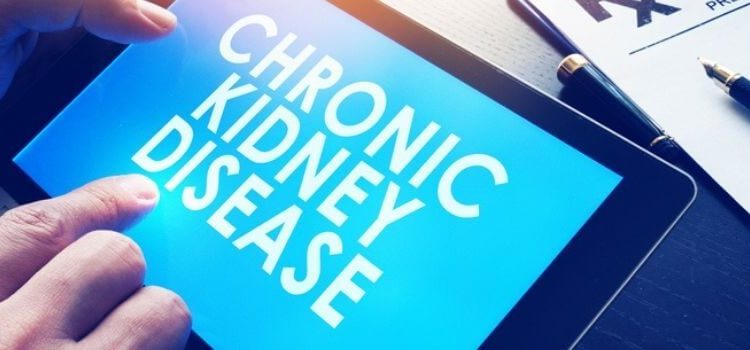If you or a loved one have been diagnosed with chronic kidney disease, you may be wondering how to move forward. With so many new medical terms, medications, and lifestyle changes, it’s easy to become overwhelmed. What, exactly, does it mean to live with chronic kidney disease? What’s the best form of treatment? And how would stem cell therapy work?
What is chronic kidney disease?
Healthy kidneys filter waste that enters the body from food, the environment, certain medications, and other toxins. This waste is then pushed out of the body through urine. Kidneys also filter pumped blood before circulating it back to the heart. However, when a person has chronic kidney disease (CKD) — also known as chronic renal failure — the kidneys gradually lose their ability to perform their filtering functions. As a result, the person experiences waste and toxic buildup, which leads to health conditions such as high blood pressure, blood vessel diseases, anemia, and heart disease, among others.
Due to higher rates of high blood pressure and type II diabetes, chronic renal failure affects about 15% of Americans. Such a high number makes it difficult to find enough kidney donors to meet the demand. Left untreated, CKD can lead to death. This is why stem cell therapy can offer a life-saving alternative form of treatment.
Causes of Chronic Kidney Disease
There are several circumstances that could cause a person to develop CKD. The most common ones include:
- Hypertension (high blood pressure)
- Diabetes mellitus
- Connective tissue diseases — such as lupus and rheumatoid arthritis
- Glomerulonephritis
- Long-term use of pain medications, including acetaminophen (Tylenol)
- Chemotherapy
- Long-term use of some antibiotics
Treating some of these underlying conditions can prevent or slow down the progression of chronic kidney disease. Unfortunately, some of these causes can be resistant to treatment.
Symptoms of Chronic Kidney Disease
The symptoms of chronic kidney disease vary from person to person, since the condition causes damage gradually. These include:
- Swelling
- Fatigue
- Muscle cramps
- Electrolyte abnormalities
- Irregular heartbeat
- Anemia — lightheadedness, shortness of breath, dizziness, and/or pale skin
What is stem cell therapy?
Stem cells are a special type of cells in humans that can develop into other types of cells or tissues. It’s the only type of cell in the body that has the ability to generate into multiple different cells. Whether a person needs more blood, cartilage, muscle, skin tissue, or brain cells, stem cells can get it done. They then make more copies of each other — as many as are needed — to sustain a person’s health.
Stem cells can be harvested from body fat, bone marrow, and from umbilical cord tissue. However, the most effective source is fat, since it is possible to gather up to 1,000 times more stem cells from fat than from other sources. In addition, they can be gathered from the same patient who needs them — ensuring that they won’t be rejected by the body.
How can stem cell therapy help patients with chronic kidney disease?
While stem cell therapy is a relatively new development for the treatment of CKD, a majority of patients have seen improvements. Some of them have been able to stop dialysis, while others have been able to avoid it altogether. This is because by harvesting stem cells, these can be regenerated into new kidney cells — providing you with a viable solution for failing kidney function. Certain types of stem cells (called mesenchymal stem cells) can also protect the kidneys from injury and promote faster healing.
If You Have Chronic Kidney Disease, Contact Innovations Medical
If you’re looking for innovative treatment that can ease the symptoms and impact of chronic kidney disease, Innovations Medical is here for you. We’ll answer your questions and resolve any concerns you have about stem cell therapy.
To explore stem cell therapy and learn how Innovations Medical can help, call us at (214) 643-8665 or schedule an appointment.

